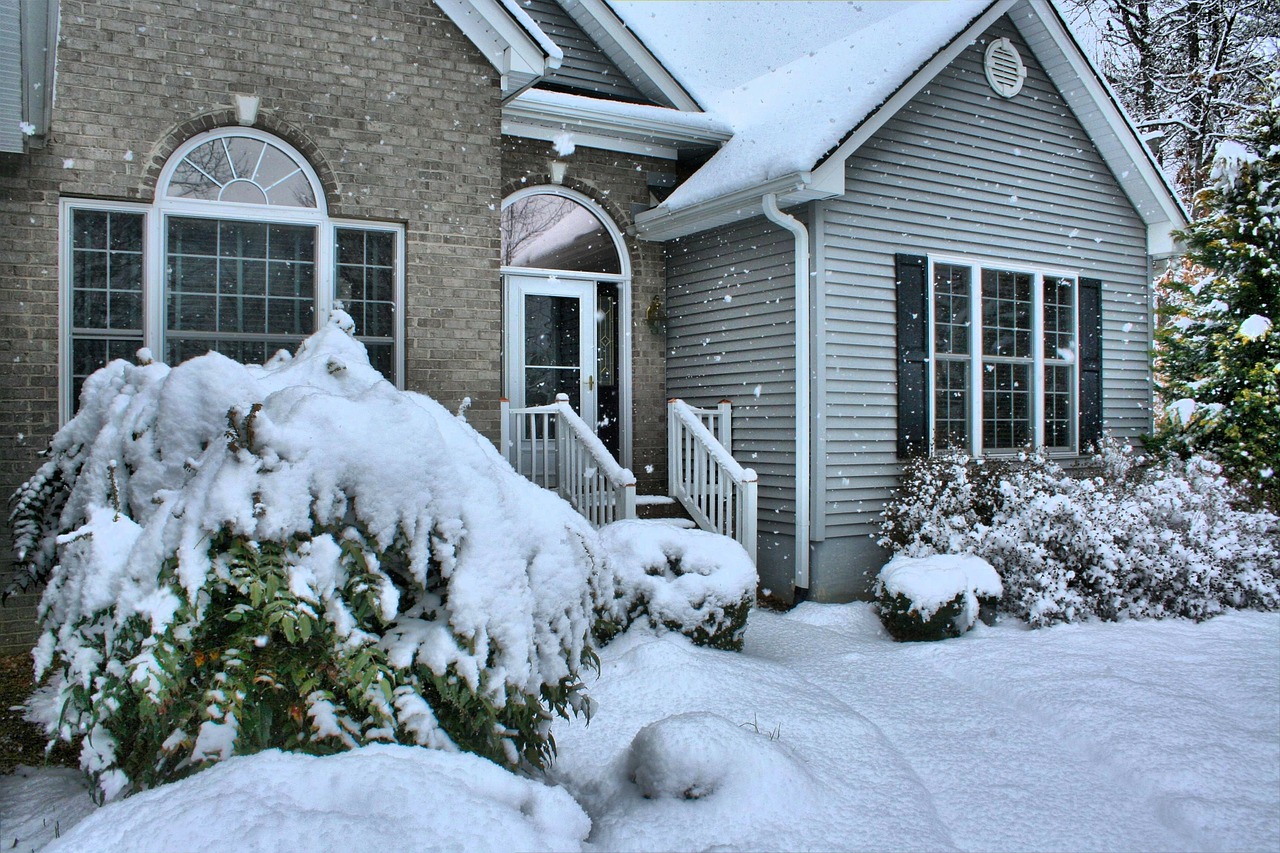The continental United States in February 2021 faced freezing temperatures unlike anything it has seen in recent years. People this phenomenon polar vortex. This weather condition damaged power lines and caused widespread shortages. This event also showed how too many homes in the country aren’t as well-prepared as they thought they are in the face of a long and hard winter.

If you live in an area that experiences snow, you’ll need to prepare for the cold months ahead. Here are eight tips to get your residential property ready during wintertime:
1. Check Your Heating System
Perform preventative maintenance and assess the health of your heating system months before the cold season. If you don’t, you run the risk of losing your vitally important heat source right as the snow begins to pile up.
Although you can always count on a commercial heater rental provider, you are much better served by your system. Check the pipes and valves as soon as possible to ensure they’re going to work fine for the next six months.
2. Clean The Flues
Chimney flues can become the lairs of raccoons, opossums and birds’ nests in the long months before winter. These pesky animals can block smoke from escaping your fireplaces and stoves, leading to dangerous levels of carbon monoxide in your home.
Hire professional chimney sweeps to remove obstructions from your home’s flues, as well as to scrape down the sides clean of creosote, a dangerous and highly flammable substance that could ignite and potentially burn down your house if left unchecked.
3. Caulk the Windows
Uncaulked windows can drive your utility bills up as your home leaks out precious heat. Without the benefit of good caulking, your windows can be letting in chilly drafts that require your furnace to work double-time just to keep your toasty.
Go around the home and, secure all your windowpanes and seal off any gaps using a caulk injector.
4. Assess the Garage
Your vehicles will need as much protection as possible during winter. Unfortunately, not all garage or carport designs are up to the task of keeping away freezing temperatures and snow.
Given this, check the insulation throughout the entire garage for any signs of fraying or damage. Windows and openings must be airtight. Otherwise, you run the risk of frozen car fluids and your entire vehicle going dead.
You should also generously oil the hinges of your garage door and perform basic maintenance on the opening mechanism to prevent it from sticking in the cold.
5. Repair Attic Insulation
Few people want to venture into their home’s attic. You, however, need to do this, especially before winter.
The attic is home to your home’s insulation. Without checking on them, you risk the chance of losing so much heat.
Animals, such as squirrels or rats, can gnaw on your insulation. What’s worse, a water leak turns your attic into a fungal breeding ground.
Repair your attic insulation thoroughly and make sure to patch up any leaks to prevent disastrous heat loss.
6. Trim Trees
Trees provide excellent shade and cooling to any residential property. These plants, however, pose dangerous threats to the integrity of your home, especially during winter.
The accumulated weight of the snow due to heavy snowfalls and blizzards can cause tree branches to snap and collapse on your house. Trim your trees properly and get rid of large branches hanging over your house.
7. Secure Gutters
Your gutters can collect a lot of snow and debris during the winter months. What’s more, they turn into ice dams, as the run-off from the repeated freezing and thawing common during winter creates enormous blocks of ice.
If you don’t want these ice dams to destroy your gutters, you’ll need to employ warming strips or similar measures. These devices can help secure your gutters and melt any ice accumulating in them, keeping them free and light.
8. Assess Smoke and Carbon Monoxide Detectors
Heating appliances work around the clock during wintertime. This, however, can be dangerous without proper smoke alarms and carbon monoxide detectors. These devices ensure that you receive ample warning if there’s an uncontrolled fire or seeping carbon monoxide in your home.
Check the batteries of all these devices and make sure there’s one installed near every ignition source and fireplace to prevent tragedies from happening.
Winter can be a wonderful time of the year, but only with careful planning and preparation. With these tips in mind, you can relax next to your roaring fire, secure in the knowledge that your property is well-equipped to weather the cold months.